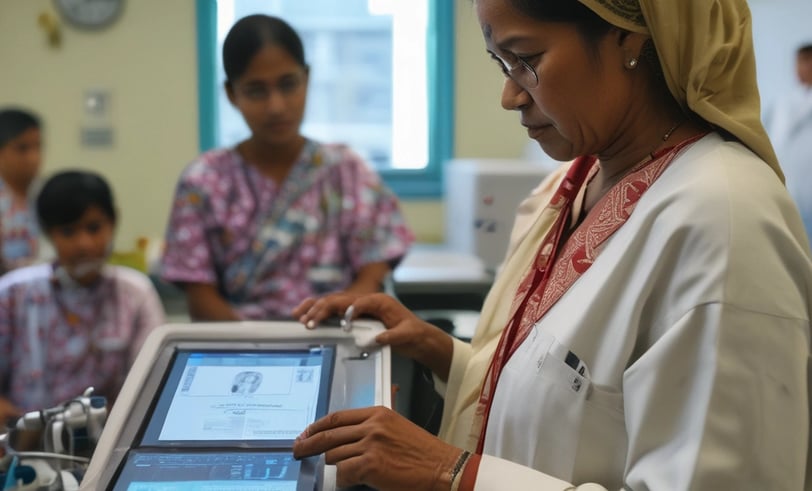Enhancing Bangladesh's Healthcare System Through AI Innovations
3/29/20252 min read


Introduction to AI in Healthcare
The integration of artificial intelligence (AI) into healthcare systems has opened new vistas for improving patient care and operational efficiencies worldwide. In Bangladesh, where the healthcare infrastructure is still evolving, leveraging AI technologies such as chatbots can significantly enhance service delivery. This post explores several ways in which AI can benefit the healthcare sector in Bangladesh.
Streamlining Patient Interaction
One significant area where AI can improve healthcare is through efficient management of patient interactions. Chatbots can serve as the first point of contact for patients seeking help for various health conditions. By using AI-powered chatbots, healthcare providers in Bangladesh can offer instant responses to common health inquiries. This technology not only reduces wait times but also increases accessibility, particularly for those living in remote areas. Patients can receive timely guidance, alleviating the pressure on healthcare professionals.
Data Management and Analysis
Another crucial application of AI in the Bangladeshi healthcare landscape is in data management and analysis. AI algorithms can process large volumes of medical data, providing insights that can assist in making informed decisions about patient care. For instance, machine learning models can identify patterns in patient histories, helping doctors to predict disease outbreaks or recognize unusual health trends in specific populations. Additionally, integrating AI tools can automate administrative tasks, thereby allowing healthcare staff to concentrate more on patient care instead of paperwork.
Personalized Treatment Plans
AI's capacity for customizing healthcare solutions is another remarkable advantage. Leveraging AI algorithms, healthcare professionals in Bangladesh can analyze individual patient data much more effectively. This enables the formulation of personalized treatment plans tailored to patients' unique medical histories, lifestyle factors, and genetic information. Such precision medicine holds the potential to enhance treatment outcomes significantly, contributing to a higher quality of care.
Enhancing Diagnostic Accuracy
AI technology can also play a pivotal role in improving diagnostic accuracy. Deep learning systems can analyze medical imaging, such as X-rays and MRIs, aiding radiologists in identifying anomalies that are not readily apparent to the human eye. Implementing AI solutions for diagnostic purposes ensures quicker and more accurate analysis, leading to earlier interventions and better patient outcomes.
Conclusion
As Bangladesh strives to advance its healthcare system, the implementation of artificial intelligence offers vast opportunities for improvement. From enhancing patient interaction with chatbots to making informed decisions through data analytics, AI can transform the ways healthcare is delivered. By embracing these technologies, Bangladesh can move towards more efficient, accessible, and personalized healthcare solutions that ultimately lead to better health outcomes for all citizens.

